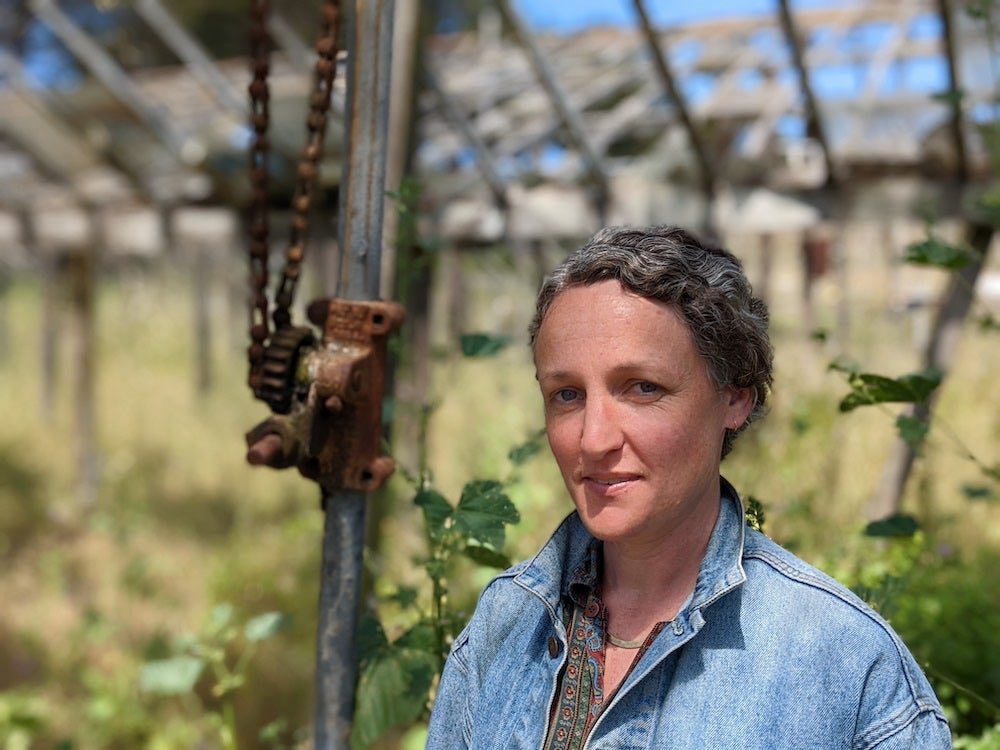
In this, the last new episode of Season 4 of this podcast, Caitlyn picks up where she left off in Part 1. She and a friend she'd been gardening with started selling salad mix and herbs to places like Tartine and other nearby restaurants. They also established a small CSA for folks in the building where their garden was as well as a few neighbors.
The success of this project had them thinking on a larger scale—they wanted to establish a commercial farm. Of course, that's not so easy if you intend to stay in a city like San Francisco, which they did. They also decided not to go the non-profit route, preferring rather to keep things manageable and adopting more of a co-op model.
Around 2010, they found a plot of land in the Excelsior that had once been a creek and was surrounded on three sides by backyards. They tracked down the landlord, who lived in LA, and convinced him to lease the land to them for one and a half years.
Clearing the land and readying it for gardening took some time. But owing to the creek that used to flow through it, the land was fertile and nutrient-rich. But of course, there were challenges. Zoning was among the first. So they worked with The City to address issues around that.
Little City Gardens was born. Three years or so into the project, her partner left San Francisco, but Caitlyn stayed on, enlisting more folks to help out. They ran Little City for another nearly four years, growing and selling vegetables, flowers, and herbs. They sold to even more restaurants than before, had an ongoing presence at farmer's markets, and expanded their CSA.
When the lease ran out and the owner went to sell the land, they tried to get a trust to help buy it. But it didn't happen. A private school purchased the land in 2014, and LCG worked with them for two more years. Then Little City Gardens was no more.
It was 2016 and before Little City closed, Caitlyn found the Friends of 770 Woolsey, a group of Portola neighbors dedicated to gaining the rights and raising the money to purchase a square block in the neighborhood that, until the 1990s, was a working greenhouse.
Caitlyn shares a deeper version of the history of the lot than she laid out in Part 1. The greenhouses that today are relics were built in 1922 by the Garibaldi family. At the time, there were a couple dozen such locations in the Portola. The greenhouses shut down in the '90s, as we've mentioned, and the Garibaldis sold the property in 2017.
In 2021, the developers who bought the lot made an offer to the community to buy it. The offer is time-sensitive and expires this July. And so, the Friends of 770 Woolsey and the Greenhouse Project are raising money to that end. You can donate to that effort here. You can follow both groups on IG: Friends of 77 Woolsey and Greenhouse Project.
We end this episode and this season of Storied: San Francisco with Caitlyn's thoughts about what it means to still be here in The City, fighting not only to stay, but to make this seven-mile-by-seven-mile plot of Earth better for all the humans, plants, and animals who share this space.
We thank you for listening, this season and the three that came before. In the coming weeks, we'll be rerunning episodes from our archives, so be on the lookout for those. We'll also pop in from time to time with messages about whatever's on our minds. We encourage you now as we always have to share with us and fellow listeners what's on your mind as we move ahead to whatever's next for this city we all love to hate and hate to love. Peace.
We recorded this podcast at the Greenhouse Project in the Portola in April 2022.
Photography by Jeff Hunt
Subscribe to Podcast
https://storiedsf.libsyn.com/rssOr, search for “Storied: San Francisco BFF.fm” anywhere you listen to podcasts.

